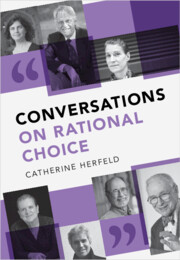Anti-fascism should have broad support across the American political spectrum. Elections need to be defended. Here's an open letter from retired professors at HBS (where I'm emeritus) in which we call for business leaders to address that need. This version is in the Harvard Crimson:We’re 23 HBS Professors. This Is the Cost of Silence.
"As the 2026 elections approach, we are witnessing many efforts to subvert American democracy by undermining one of its critical foundations: fair and free elections.
This is a matter of both voter access to the political process and the integrity of the process itself.
Business leaders — known for their capable company leadership and not their political party membership — are uniquely positioned and clearly needed to address this imminent threat in a strong and nonpartisan fashion.
It is vital to recognize the escalating threats to American democratic processes. On January 28, Federal Bureau of Investigation agents executed a search warrant at an election center in Fulton County, Georgia, for ballots from the 2020 presidential election. On January 24, the U.S. attorney general made unprecedented demands in a letter to the Minnesota governor for information on voters in that state. For the past several months, the federal government has been collecting the largest database of voter information ever gathered by the Department of Justice — information that could be used to fraudulently impact election results. Deployment of armed federal immigration officers in American cities is discouraging citizens of various ethnicities — many of whom have already been detained — from venturing to schools, stores, and workplaces. It’s doubtful they will venture to the polls on election day.
We are retired Harvard Business School professors who have devoted our lives to business education. We ask that the leaders of the business world in the United States — some of whom it has been our privilege to teach — speak out now, act now, in defense of democracy.
“This is preeminently the time to speak the truth, the whole truth, frankly and boldly.” These words, spoken by Franklin D. Roosevelt ’04 at his first inauguration, perfectly describe our situation today.
We understand the reluctance to speak out. Nobody wants to be a target in the toxic environment surrounding us. We understand that business leaders have a responsibility to their shareholders, employees, and customers, who may not agree with the politics of the CEOs.
But we are not asking for a statement about politics. We are asking for a statement about the most basic feature of democratic government — namely, the right to vote in electing public officials and adopting or rejecting proposed legislation.
Ensuring that our government meets this test is not a partisan issue. Business leaders can do much to help the nation that has done so much to enable them to have fulfilling careers leading successful companies. They can speak out, individually or collectively, for the proposition that access to the polls is a right that must be protected by the rule of law. Business leaders did speak, collectively, about the importance of election integrity in 2020. We need to hear these voices again.
They can allow their employees paid leave not only to vote but also to safeguard the polls, if they choose, against any intimidation from the left or the right. Some companies, including The Coca-Cola Company, JPMorgan Chase & Co., Procter & Gamble, Salesforce, and Walmart, are already supporting such efforts.
Our country will be a shadow of itself if our democracy fails — economically, socially, and in global standing.
“If destruction be our lot,” Abraham Lincoln said, “we must ourselves be its author.” Business leaders must act to prevent our country from being the author of its own destruction.
The world witnessed what happened when Germany turned its back on democracy on January 30, 1933. History does indeed have lessons to teach. We must strive to see that what happened there, then, does not happen here, now.
Some business executives may feel that any action or statement conflicts with their role as CEO. We understand that reticence. But we respectfully disagree.
A well-functioning democracy and, with it, the rule of law are essential for the functioning of a free enterprise economy.
We urge business leaders to recognize that there is no conflict between their responsibilities as CEO and their responsibilities as citizens. The cost of silence is incalculable.
This is the moment for leaders to lead. If not now, when?
Teresa M. Amabile is the Edsel Bryant Ford Professor of Business Administration, Emerita, at Harvard Business School. Richard S. Tedlow is the Class of 1949 Professor of Business Administration, Emeritus, at Harvard Business School.
Teresa M. Amabile, James E. Austin, Carliss Y. Baldwin, Christopher A. Bartlett, Michael Beer, Stephen P. Bradley, John A. Deighton, Allen S. Grossman, Paul M. Healy, James L. Heskett, Dorothy A. Leonard, Paul W. Marshall, F. Warren McFarlan, John W. Pratt, Alvin E. Roth, Malcolm S. Salter, Benson P. Shapiro, Howard H. Stevenson, Richard S. Tedlow, Richard H.K. Vietor, Lou T. Wells, Michael A. Wheeler, and Gerald Zaltman are retired professors at Harvard Business School. They sign as individuals, not as representatives of Harvard Business School, Harvard University, or all retired professors at HBS."



